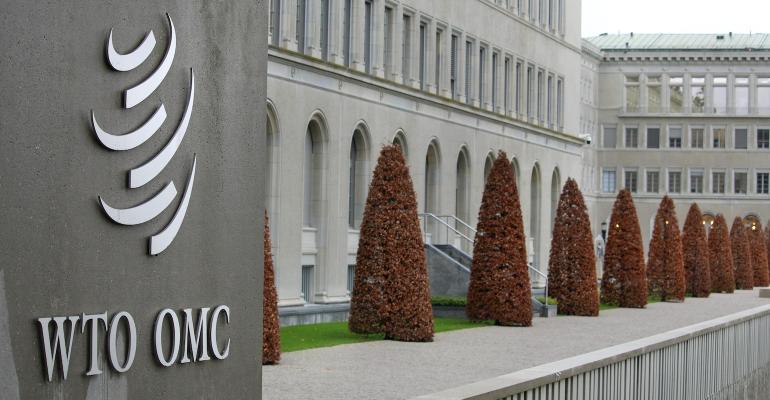The COVID-19 pandemic, in showing up the acute shortcomings of global supply chains and delivery mechanisms when dealing with a major global public health crisis, has taught a number of lessons, acknowledged Zaki Hosny, Senior Advisor, Albright Stonebridge Group, speaking to Omnia Health Insights ahead of Arab Health 2021.
The insufficient speed at which government and public health bodies around the world make and implement decisions, for one.
While small territories such as New Zealand and Taiwan acted quickly and decisively in responding to the pandemic in its early stages, for instance, many larger countries did not.
Days matter in a pandemic, making COVID-19 an altogether different challenge from the usual type of chronic public health crisis tackled within known parameters, whether for example a non-communicable disease or a cardiovascular disease.
Although a “very good initiative”, COVID-19 Vaccines Global Access (COVAX), designed to enable equitable access to COVID-19 vaccines, did not start until late April 2020. To date more than 81 million vaccines have been shipped to 129 participants worldwide yet the programme continues to lag behind initial expectations in delivering to countries worldwide.
Welcoming the recommendations for preventing the next pandemic, put forward by the Independent Panel for Pandemic Preparedness and Response, co-chaired by Helen Clark and Ellen Johnson Sirleaf, Hosny called for a detailed global roadmap to be agreed on all by all major players ahead of time, as a form of contingency plan, owing to the difficulty of coordinating to create the necessary mechanisms during a global crisis. Such a roadmap would clearly articulate what needs doing, by whom and by when, Hosny explained.
The roadmap would include the creation of a standby pandemic financing facility, recommended in the Independent Panel’s report published in May 2021, to distribute up to US$ 10 billion a year for preparedness and up to US$ 100 billion to be made immediately available to countries and institutions in the event of a crisis.
Hosny offered the earlier example of the Group of Twenty (G20) quickly coming together in the wake of the 2008 financial crisis and agreeing on economic recovery measures amounting to US$ 1.1 trillion.
Accelerated innovation
While much of the world was slow to come together in responding to the pandemic, the development of effective vaccines in record time, once genome sequences were in the public domain, was a resounding scientific success.
The world has reached an “inflection point” in medical technology innovation, according to Hosny, pointing to the sheer scale and speed of change today – the fruition of governments, private sector venturing financing and private enterprise coming together.
Progress in pharmaceuticals, medicines and, to an extent, medical devices, has traditionally been incremental: novel mechanisms of actions of drugs improve over a course of 15 to 20 years, for example. This will likely change, resulting in developing and discovering new ways of treating disease much earlier than at present.
Procuring supplies
While COVID-19 vaccine development was rapid, the procurement of vaccines themselves has been problematic.
In India recently, states have been competing with one another to procure vaccines, raising questions of vaccine equity and access (India’s central government is now considering reverting to centralised procurement).
Similarly in the United States, there was competition between the various states in procuring masks and ventilators.
In large federal systems, a centralised procurement mechanism is more appropriate, thereby efficiently coordinating at national level rather than delegating down leading to a potential “scramble” for supplies, Hosny explained.
Waiving IP for COVID-19 vaccines
The proposal to the WTO to temporarily waive provisions from the TRIPS (Trade-Related Aspects of Intellectual Property Rights) agreement on IP rights and transfer technology to vaccine producers, was also questioned by Hosny.
The TRIPS waiver was proposed by India and South Africa with the goal of waiving implementation, application and enforcement of IP protections until “widespread vaccination is in place globally, and the majority of the world’s population has developed immunity.”
Today it is sponsored by 62 countries and backed by the Biden-Harris Administration.
While understanding that the WTO waiver mechanism was included in the TRIPS agreement precisely for deployment in situations such as the pandemic, Hosny’s preferred approach is centred more on pragmatism.
Protecting intellectual property is critical, he emphasised, explaining that governments funded the development of COVID-19 vaccines with a significant amount of risk upfront.
He advocated a different solution towards achieving vaccine equity, explaining “If you are successful in creating a vaccine, that is then approved by the regulators, and we are giving advance purchase orders, a condition of the purchase agreement would be that you will provide vaccines at cost to low and middle income countries.”

